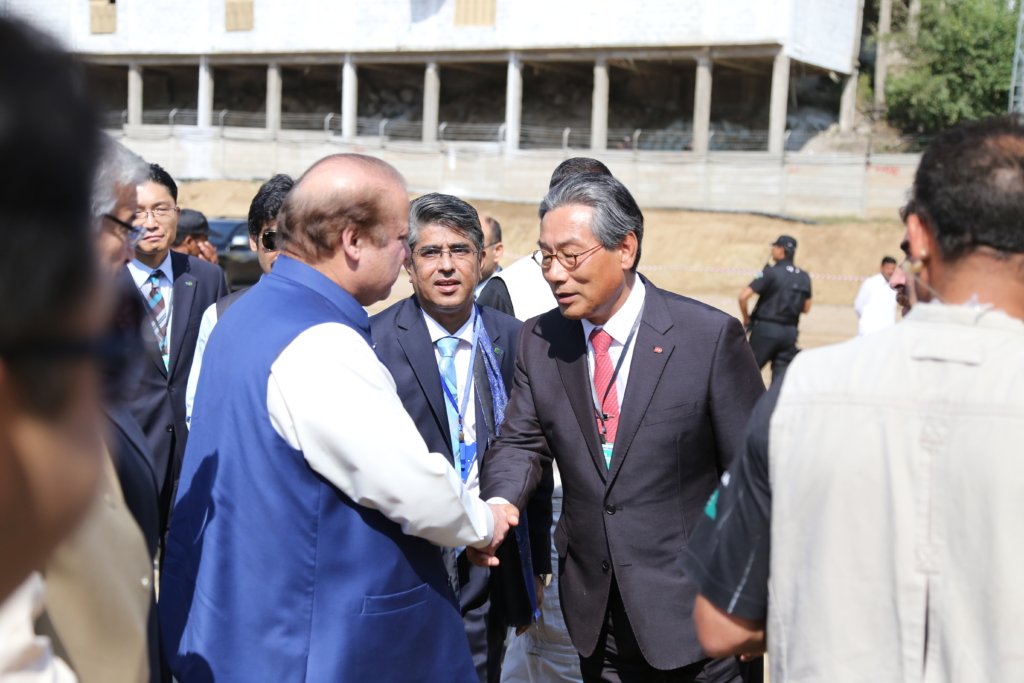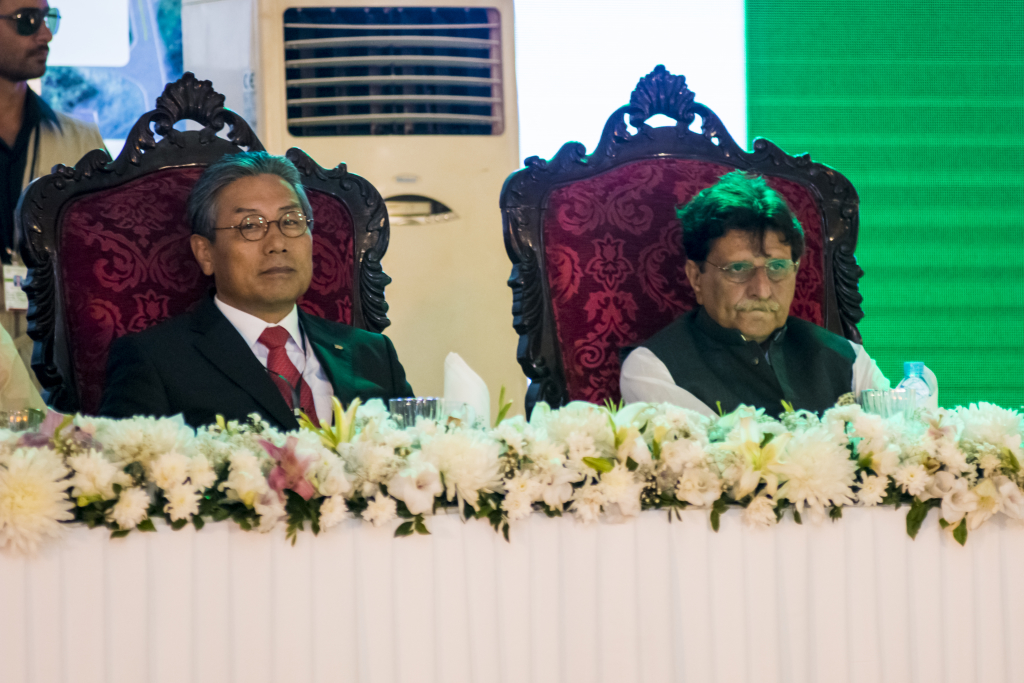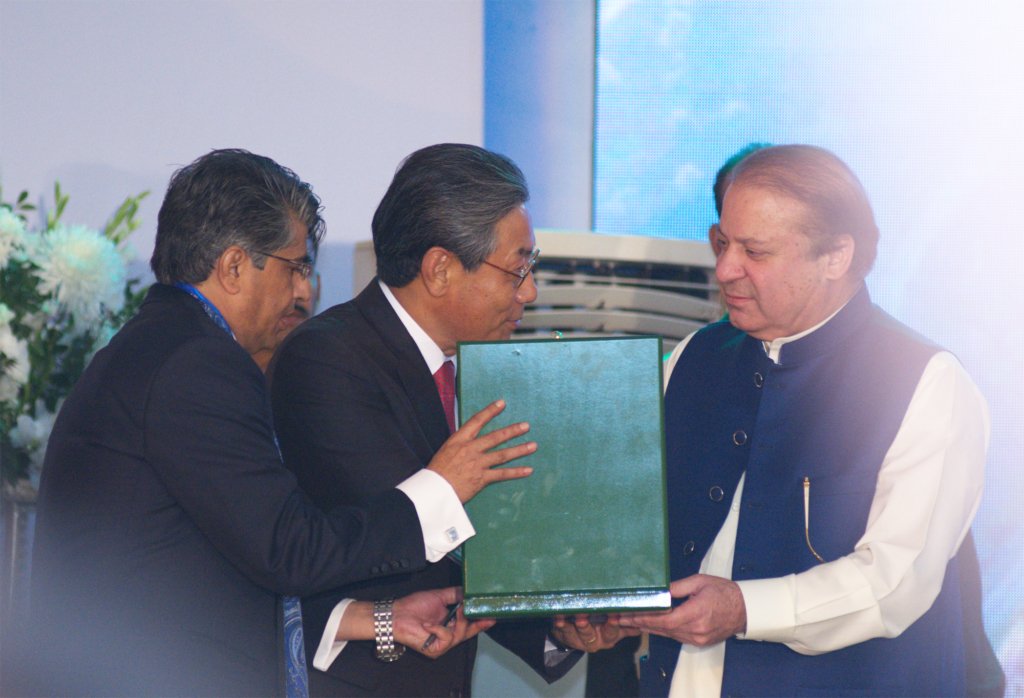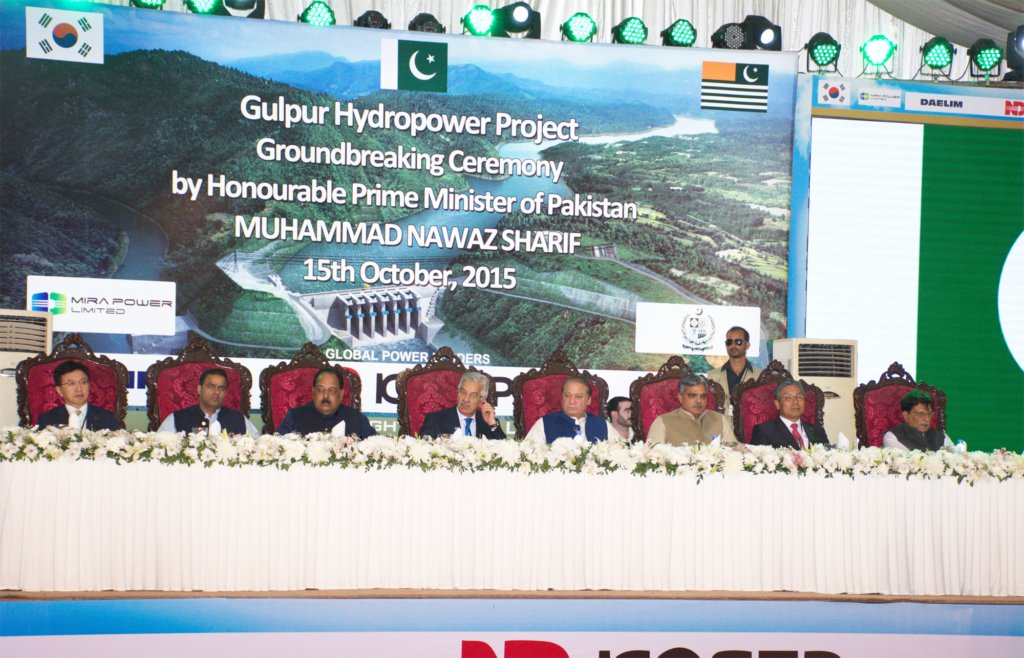Prime Minister Nawaz Sharif inaugurated the 102MW Gulpur hydropower project on Poonch river in AJ&K on thursday. The hydropower plant project is expected to be completed in four years.
Speaking at the inauguration ceremony, the premier said the government plans to build a host of small and big hydropower projects to address the issue of electricity shortage.
The prime minister reiterated commitment to address the issue of power shortage by the end of 2017. He said power shortages have already considerably been reduced from 12 to six hours. These will continue to decline in the years to come, he said.
Addressing the ceremony, Prime Minister Azad Kashmir Chaudhary Abdul Majeed appreciated the goverment’s steps towards addressing the electricity shortage in the region. He also lauded the prime minister for strongly raising the Kashmir issue at the United Nations (UN) General Assembly.
The government signed an implementation agreement with a South Korean consortium to set up the 102MW Gulpur hydropower project in September 2013. The project, developed by Mira Power Limited, is a subsidiary of Korea South East Power Company (KOSEP) of South Korea. Korean investors will inject up to twenty five percent funds in the project while the remaining will be provided by different banks.
The International Finance Corporation (IFC) earlier in June 2015 announced an investment of $50 million for Gulpur hydropower project and mobilising a further $72m for the project to address Pakistan’s power shortage, support lower cost energy generation, and help develop renewable energy sources, Dawn newspaper reported.
The Asian Development Bank (ADB) is already supporting the project in line with the country partnership strategy for Pakistan.
The project involves construction and operation of a run-of-the-river hydroelectric power generation facility on Poonch River, some 28km upstream from Mangla, the country’s second largest water storage reservoir.
It will generate electricity by using indigenous water resources, and the tariff for electricity supplied by the project will be lower. The project will also avoid greenhouse gas emissions of almost 240,000 tonnes of carbon dioxide per year.













